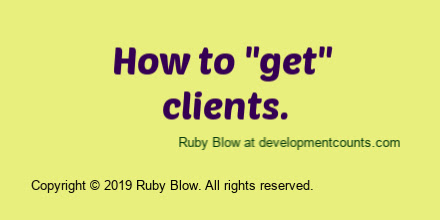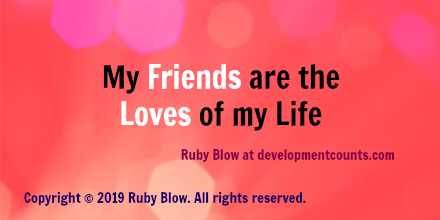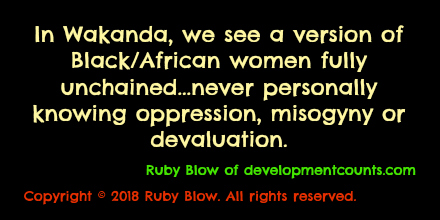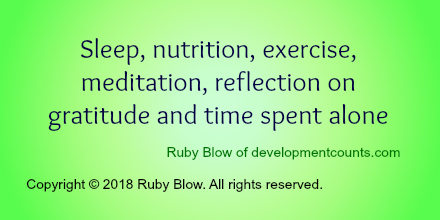How was your day?
Earlier today my mover helped me with picking up some furniture for my mother’s assisted living home. He asked me how my day was and I said, “It was okay, better than yesterday.” He immediately replied with
- “You woke up today didn’t you?”
- “There are people who have it worse off than you right?
- “He woke you up today didn’t He?”
To which I replied “I get your point, you’re trying to be helpful and I appreciate that.” He continued “nah, nah” so I stopped him and said “The sentiments you are expressing hold some truth. However, my mother is dying (late stage Alzheimer’s) and it is something that is difficult to say the least.” He began to look sheepish and apologetic.
Then he said “Well I asked you how work was, not how your day was.” Insisting that he didn’t ask about my day but about my work. As if somehow not accepting my assessment of my own day would be better if he had accidentally admonished me for having a negative attitude about my work/business and not about my day which includes any elements I deem relevant.
Feelings
This exchange reminded me of how uncomfortable it can be for people to hear or know how someone is really feeling. It reminded me of how platitudes, affirmations and scripture can be used to cut people off from a vital aspect of self – Feelings.
It seems to me that people are increasingly uncomfortable with emotions: their own and others. As part of a discussion in one of my supervision groups this week, I asked a group of 5 clinicians/therapists what they “felt” when they heard a peer share a case for consultation. Only 1 gave a response that fell in the realm of a description of a feeling. The other four participants did not recognize that they were responding with thoughts instead of using words to describe feelings.
If therapists are challenged to be attuned to their feelings, what impact does that have on therapy?
Relationships
At our best, all relationships provide an opportunity for feeling, expressing, learning and healing. Prior to or while opening up, many of us engage in a process of determining how much of one’s self and one’s feelings can be shared with a specific person.
- Is it safe or will I be dismissed or judged?
- Do they listen or wait for me to stop speaking?
- Do they listen or are they clearly inattentive and disinterested?
- After they listen, do they use what I shared in some way to shame me or embarrass me?
Your ability to listen and your ability to share your own feelings are vital to healthy relationships.
Which came first – the thoughts or the feelings?
It is my estimation that feelings generally come first. Feelings are like instincts. However, our thoughts can fuel the momentum and direction of our ongoing feelings and emotions. Many therapists, like the general population, prefer to focus on thoughts over feelings and emotions. They recognize that thoughts are easier to impact from an intellectual perspective.
Feelings, however, when you are not well versed in empathetic responding and coming alongside, can be more difficult to perceive. Detecting feelings requires an “other” awareness and focus, coupled with self awareness and the courage to feel…because at times, feelings are uncomfortable or unsettling.
Many people – therapists and non-therapists – ignore body language, energy, gut instinct and almost every form of non-verbal expression in favor of logic. They choose to believe that the only feelings expressed by others are the actual feeling words they say. And ignoring the feelings of others is the first step to either ignoring or suppressing one’s own emotions.
Healing requires closeness, connection and letting people in. How can someone let you in when you ignore their invitations to listen on a heart level?
Ask, listen, accept.
The best use of logic for healing relationships is for the listener to ask themselves “How would I feel if that were me?” But also, to quickly recognize that how you would feel is unique to you and how others are feeling may or may not be similar to your feelings, but is still unique to them.
We all know that not every “How was your day” question is intended to lead to a real heart-to-heart. However, when you choose to walk in genuineness and authenticity and share some aspects of your true experience, and when the relationship matters whether it be:
- family,
- friend,
- mentor,
- spouse,
- partner,
- lover….
it is vital to speak and be heard. In some cases, you must insist. Ignoring one another’s feelings and dismissing them as over dramatic, thinking too much and/or making a big deal about nothing…we are letting our loved ones know that we cannot be relied on. That we are limited in our capacity to be present. That we, in fact, do not have the courage to feel.
Copyright © 2018 Ruby Blow. All rights reserved.
Share your thoughts on Linkedin, Facebook, Twitter or log in to one of your accounts below to comment. Subscribe to my YouTube channel.





